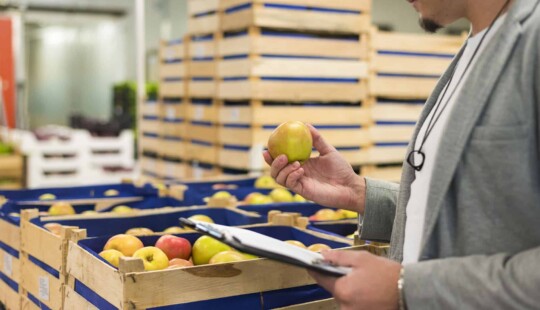As climate disasters continue to devastate communities around the world, businesses, governments, and citizens increasingly seek to understand the major contributors to climate change to reverse any reparable effects and ensure a more sustainable future for all.
The fashion industry is one of the most significant contributors to the climate crisis today. Between excess water, dangerous chemicals, carbon emissions, and huge amounts of waste, the fashion industry faces a critical juncture. Will the industry seize the opportunity to change its course and positively impact the planet? Despite the huge task at hand, creative and innovative entrepreneurs provide hope for a more sustainable future for fashion.
I had the privilege to sit down and speak with one such entrepreneur, Stephanie Benedetto, to learn more about how she is changing the textile industry and the world while encouraging others to have courage in their convictions and act on their beliefs. Listen to our conversation and read more about her story below.
From Rags to Circular Riches
In 1896, an Austrian man arrived on a boat on Ellis Island. As an immigrant chasing the “American dream” in the Lower East Side of New York, he started a business, one that generated profit while doing good for the planet. He repurposed old fabrics and furs brought over by other immigrants and transformed them into beautiful fashion garments.
One hundred years later, this profitable clothing business with humble beginnings would inspire the Austrian immigrant’s great granddaughter, Benedetto, to leave her job as a corporate attorney and become a fashion tech and sustainability entrepreneur. Benedetto returned to her roots and sparked disruption with the goal of building a business to change the world, scaling her grandfather’s efforts for even greater impact.
Meet the Queen of Raw
Stephanie Benedetto, CEO and founder of Queen of Raw, is a visionary entrepreneur, creating opportunity out of the seemingly insurmountable challenges facing the fashion industry. Today, $120 billion worth of excess fabric sits in warehouses and 87% of fiber input used for clothing ends up burned or in landfills.

Benedetto wanted to eliminate the excess water, waste, and emissions that had become an inherent part of the value chain for clothing production. She sought to turn pollution into profit through the creation of a global marketplace that allowed users to list, sell, and buy deadstock fabric. This led to Queen of Raw, which offers new life to sustainable materials, including organic cotton, peace silk, faux leather and fur, and quality luxury deadstock fabrics.
Technology to Scale for Impact
Using supply chain software, powered by artificial intelligence (AI), Queen of Raw alters the linear economic model typical of the fashion industry and transforms it into a circular economic model, protecting the environment while driving value financially. At its core, Queen of Raw uses technology to drive sustainability at scale, repurposing textile waste so it can be turned into something beautiful.
But Queen of Raw seeks to go beyond creating a marketplace for deadstock fabric.
“A marketplace to sell waste is great,” said Benedetto. “It’s powerful, but it’s kind of just slapping a band aid on the problem.”
So how do you get to the root of the problem to figure out how to minimize waste?
“That’s where we leverage our incredible partnership with SAP, helping businesses capture data through machine learning, AI, and blockchain so they can act on the waste — and water — challenge at hand,” said Benedetto.
Data insights and transparency provide a key piece of the puzzle when it comes to enabling more sustainable business practices globally. Technology, collaboration, and innovation make widespread change possible, and Queen of Raw provides an encouraging, real-life example of how business leaders can bring these elements together to marry people, planet, and profit at scale.
Reimagining Fashion, Textiles and Supply Chains
Benedetto demonstrates firsthand the incredible potential of technology to reimagine fashion, textiles, and value chains. Her optimism and creativity in the face of a water crisis and a waste problem provides hope for a better future. And she has strong reason to believe that her business and the commitment of other purpose-driven entrepreneurs can make a difference.
Since it began in 2018, Queen of Raw has already saved 1 billion gallons of water. By democratizing access to the resale technologies, Benedetto is empowering groups across industries to participate in the circular economy.
Together, through creative solutions like Queen of Raw, we can help foster a more sustainable world, one we can be proud of leaving behind for the next generation – with fresh water to drink and clean air to breathe.
Scott Russell is a member of the Executive Board of SAP SE.
This story originally appeared on SAP BrandVoice on Forbes.



